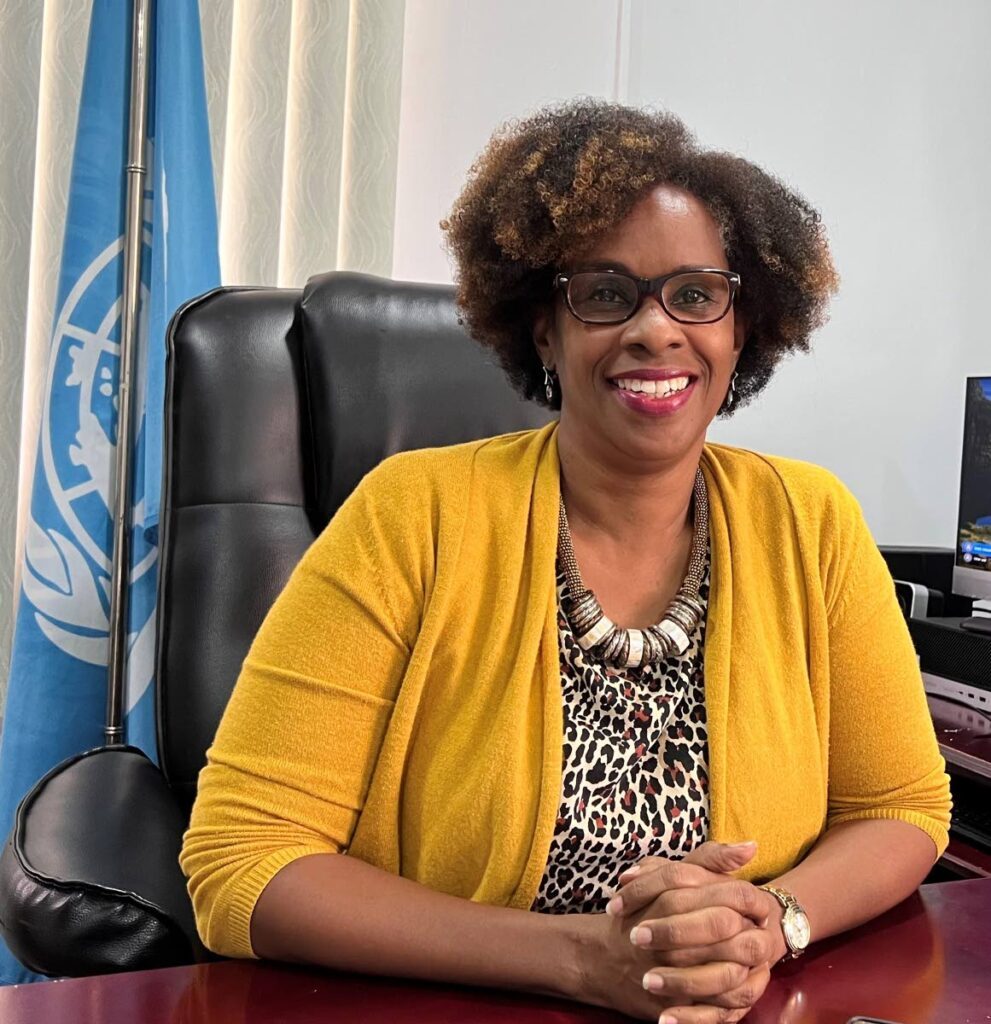Celebrating World Soil Day in Trinidad and Tobago: Nurturing the foundation of life

DR GILLIAN SMITH
EACH YEAR on December 5, the world commemorates World Soil Day, an initiative spearheaded by the Food and Agriculture Organization of the United Nations (FAO) to raise awareness about the critical importance of soil as a fundamental component of the natural ecosystem and a cornerstone of food security and sustainable agriculture. This year's theme, "Healthy Soils, Healthy Food, and Healthy Planet,” highlights the intricate connection between soil health and global challenges such as climate change, food production, and biodiversity preservation.
In TT, as in many other Caribbean nations, healthy soils are the lifeblood of productive agriculture, providing essential nutrients, water and anchorage for plant roots. They also contribute to climate change mitigation by actively storing carbon and reducing greenhouse gas emissions.
For farmers in TT, maintaining good soil health is paramount to ensuring sustainable livelihoods and food security. Healthy soils enable them to cultivate nutritious crops with higher yields, reducing their dependence on external inputs and boosting their income. Moreover, healthy soils are less susceptible to erosion and degradation, protecting their land investments and ensuring long-term productivity.
The FAO works closely with local farmers in TT to promote soil health management practices. Through training programmes, workshops and demonstration plots, the FAO equips farmers with the knowledge and skills to assess soil health, identify and address soil degradation issues, and implement sustainable soil management practices. These efforts empower farmers to make informed decisions that enhance soil fertility, improve crop yields, and protect their livelihoods.
Under the FAO Caribbean Pesticide Management Project, farmers and agriculture institutions tackle soil contamination through the promotion of integrated pest management (IPM) strategies and the responsible disposal of pesticides. The project has been instrumental in developing national IPM guidelines and training programmes for farmers and pesticide retailers.
Under the FAO project, Climate-Resilient Agriculture and Food Security (Climsafs), small farmers are supported to adopt climate-smart agriculture practices such as conservation agriculture, integrated nutrient management and agroforestry. These practices can significantly improve soil health, water retention and carbon sequestration, thereby contributing to climate resilience and sustainable agricultural production.
Between 2021-2025, FAO, in collaboration with the Partnership Initiative on Sustainable Land Management (PISLM), is working in several Caribbean countries to implement the Caribbean Small Island Developing States (SIDS) multi-country soil management initiative for integrated land restoration and climate-resilient food systems. This multifaceted project will assist countries to meet their obligations to land degradation neutrality (LDN), as well as assisting farmers' organisations and their members to comprehensively improve food production systems and adopt sustainable land and soil management practices
As TT celebrates World Soil Day, here are a few key messages to remember:
* Soil is a thin layer that unevenly covers the Earth's land surface. It is composed of minerals, organic matter, water and air and is fundamental to life on Earth, even though we sometimes take it for granted.
* Soil plays a crucial role in supporting plant growth, maintaining biodiversity, and regulating climate.
* Soil is teeming with life. A single gram of soil can contain millions of micro-organisms, including bacteria, fungi, protozoa, nematodes and earthworms, all of which form a complex web of interactions that contribute to nutrient cycling and soil health.
* Soil organic matter, the dark, humus-rich component of soil, is essential for soil fertility and productivity. It improves soil structure, enhancing water retention and aeration, and provides a reservoir of nutrients for plant growth.
* Soil degradation, the decline in soil quality, poses a serious threat to food security, ecosystem services, and human well-being.
* Human activities (including poor agriculture practices and over-extraction of water) contribute significantly to soil degradation and can render land unusable for agriculture. Globally, it is estimated that 34 per cent of all land is moderately or severely degraded. This means that the land is not able to support the same level of productivity as it once did. In TT, the rate of soil degradation is estimated to be between 30 per cent and 40 per cent.
* Addressing soil degradation requires a concerted effort at local, national and international levels. Sustainable soil management practices, such as conservation agriculture, cover cropping, and integrated nutrient management, can help maintain soil health and productivity.
* Through its National Soil Policy and Action Plan, TT has demonstrated its commitment to addressing soil degradation and promoting sustainable land management.
* This invaluable work requires collaboration with multiple partners including the Caribbean Agricultural Research and Development Institute (CARDI) and UWI. It can also make use of valuable insights provided by relevant traditional and indigenous knowledge systems, many of which are deep understanding of local ecosystems.
Soil is a finite and irreplaceable resource, essential for food security, ecosystem services and human well-being. Protecting soil health through sustainable management practices is crucial for ensuring a healthy planet and a prosperous future for all. By promoting sustainable soil management practices, we can safeguard this resource for a healthy planet, nutritious food and prosperous livelihoods. The FAO maintains its commitment to working with governments, farmers, and other stakeholders in TT and across the Caribbean to nurture and protect the soil, so that it continues to sustain life and nourish communities.
Dr Gillian Smith is the FAO representative (ad interim) to TT and Suriname


Comments
"Celebrating World Soil Day in Trinidad and Tobago: Nurturing the foundation of life"